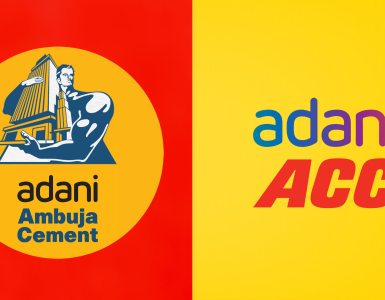Another round of amendments to Companies Act 2013 are in the pipeline after the government eased a host of provisions of the comprehensive law enacted by the previous UPA government that was seen by many experts as draconian in its penal provisions. Provisions related to inter corporate loans, managerial remuneration, independent directors, insolvency and SMEs are likely to be taken up by a highlevel committee set up by the government in the first round of review, an official familiar with the developments told ET. The eight-member panel set up earlier this month includes members from the industry as well as judiciary.
An executive (junior) committee consisting of industry professionals is likely to be formed to go through these sections and recommend changes, which will then be approved by the highlevel committee. The contours of the committee are yet to be finalised by the corporate affairs ministry.
The most important issue under the Companies Act that the industry wants addressed are the provisions relating to intercorporate loans.
The government has already sought suggestions on the relevant section 185 of the Act and the review will start soon. The Act has made it difficult for a promoter company to fund its special purpose vehicles (SPVs) or joint ventures through loans, which was allowed easily under the Companies Act of 1956″Infrastructure companies are most affected by intercorporate loan provision as it has become difficult to raise funds through their promoters in form of loans due to several riders,” said Anshul Jain of Luthra & Luthra Law Offices. “The entire section dealing with loans needs to be reviewed. The provisions are far too strict for companies,” said Lalit Kumar, partner at J Sagar Associates.
Many of these provisions were introduced in response to the Satyam fraud. The issue of independent directors will also be taken up by the committee.
At present, independent directors can get sitting fees (Rs 1 lakh per meeting) and profit related commission. But in case of lossmaking or companies with inadequate profit, commission can’t be paid to independent directors.
Under the new Act, listed companies need at least onethird of its board to consist of independent directors. “Lossmaking or companies with inadequate profit are not able to get independent directors as they can’t pay anything beyond sitting fees. Industry is seeking approval for increasing remuneration for independent directors either in form of some retainership or monthly fee,” said the official.
As per India Inc’s demand, managerial remuneration for nonexecutive directors also needs to be exempted. Currently, they get sitting fee and commission if the company is making profit. “Industry is demanding fixed salary structure for nonexecutive directors,” the official said.
“The government also needs to look at internal financial control. There’s a requirement for auditors to opine that the company has adequate internal financial control. But the government is yet to decide a framework.
Whether it’s financial control or operational control that auditors have to look at,” said Sumit Seth, partner at PWC India. The committee is also likely to take up the insolvency sections in the Act for review.
India needs to work on its insolvency framework as the country’s score on strength of insolvency framework index is six out of a maximum score of 16 on the World Bank’s Ease of Doing Business index.
(Source: http://articles.economictimes.indiatimes.com)
Sebi moves against money laundering in listed SMEs
The Securities and Exchange Board of India (Sebi) has moved against four companies listed on a special platform created for fundraising by small and medium enterprises (SMEs).
Sebi’s investigations have revealed certain entities manipulated the share price of these companies to launder money. The regulator has barred a total of 239 persons / entities, including the four companies, from accessing the market.
The four companies are Eco Friendly Food Processing Park Limited, Esteem Bio Organic Food Processing Limited, HPC Biosciences Limited, and Channel Nine Entertainment Limited. The first three are involved in agricultural businesses, while the fourth is a production and distribution company for serials, films and events. The companies were listed on the BSE between January and March 2013.
“I am of the considered view that the schemes, plan, device and artifice employed in this case, apart from being a possible case of money laundering or tax evasion, which could be seen by the concerned law enforcement agencies separately, is prima facie also a fraud in the securities market,” said the Sebi order.
Entities bid up the shares of the companies to convert black money into white, according to the Sebi order. The total profit earned by the entities involved is pegged at Rs 468.99 crore. The ban comes into force with immediate effect. The barred entities can file objections within 21 days.
(Source: http://www.businessstandard.com)
Sebi relaxes listing, fund-raising norms for start-ups
The Securities & Exchange Board of India announced relaxed listing norms on Tuesday aimed at encouraging the booming startup industry to tap the local market, thus opening up investor access to the dramatic growth opportunities offered by such firms.
Startups will be able to list on the alternative institutional trading platform. The regulator has done away with the promoter concept, eased lock-in requirements and diluted fund-usage disclosures
under the liberalised norms. Sebi Chairman UK Sinha pointed out that there were more than 3,100 startups functional in India at the moment, making for a vibrant ecosystem.
A large number of M&A deals were taking place in the space with investors pumping in billions of dollars, Sinha said. “The issue that we are trying to tackle is that most of the startups were thinking of listing aboard,” the Sebi chief said at a press conference on Tuesday evening.
“They felt the regulatory regime in this country was not favourable for listing in India. So we have made very special provisions for such startup companies.” India is ranked fifth in the world in startups after the US, the European Union, Canada and China, and homegrown companies such as Flipkart, Snapdeal, Paytm and Ola Cabs have achieved steep valuations in a short period through successive funding rounds.
ET had reported on June 11 that the regulator was set to free up listing requirements for startups at its board meeting. The Indian ecommerce market, largely fuelled by foreign investors such as New York-based hedge fund Tiger Global and Japan’s SoftBank, is expected to cross $100 billion in the next five years, according to foreign brokerages.
STEP IN RIGHT DIRECTION
Investment bankers said the alternative listing platform would enable startups to raise capital and list in the country. The institutional trading platform (ITP) was launched to allow small and medium enterprises to list without an initial share sale.
“India has a growing number of startups and Internetenabled companies and the alternative listing platform is a step in the right direction to enable these companies to raise capital and list in India.
Sebi has relaxed a number of provisions related to disclosures and allocation that will ease the process and bring in high quality investors on this platform,” said Gesu Kaushal, executive director, Kotak Investment Banking.
“We should see the beginning of such high growth companies listing in India.” The new measures will also apply to nontechnology companies although there will be some differences. In the case of tech companies, 25% of the pre-issue capital has to be with qualified institutional buyers (QIBs). This will be 50% for non-tech companies. The regulator has also diluted disclosure requirements for such companies because of the nature of their business.
Companies have been allowed to disclose just the broad objects of the issue and there is no cap on amount raised for general corporate purposes. Sebi rules stipulate no more than 25% of the funds raised can be used for general corporate purposes. Besides, it has also allowed discretionary allotment of up to 10% of the issue size to institutional investors.
“Some of the changes like no cap on general corporate purpose in use of proceeds and also discretionary allocation to QIBs are steps to move the Indian IPO process as close as possible to the international process and would help companies consider (an) India listing over international listing,” said Sanjay Sharma, managing director and head of equity capital markets at Deutsche Equities India.
KEEPING OUT RETAIL INVESTORS
Sebi said the minimum application size as well as trading lot for such issues would be Rs 10 lakh. This high limit would ensure retail investors are kept out, particularly since the risks are high.
“We have given them (startups) a lot of freedom such as diluted disclosures, etc, but we are not allowing retail investors to come in,” Sinha said, adding, “These are companies with no profitability track record.” Among other proposals approved by the Sebi board, investors will soon be able to apply online for initial public offers (IPOs).
The regulator will be drawing up norms for this. The eIPO mechanism will halve the time taken for the process to six days. The current method of applying for a public issue makes it difficult to reduce the 12day period from issue closure to listing and trading of shares. “The new eIPO mechanism is a fantastic move by Sebi which would save a lot of time, cost and effort,” said Prithvi Haldea, chairman and managing director, Prime Database.
“Currently, the money spent by companies for the subscription of the retail portion, which is 35% of the issue size, is 10 times more than the rest.”s




